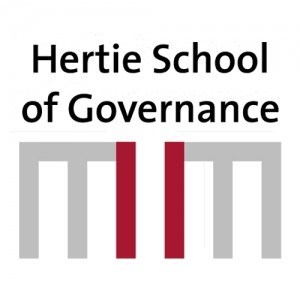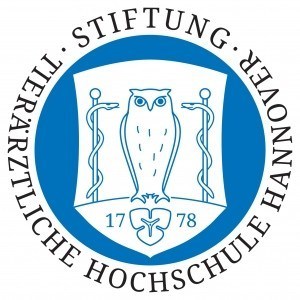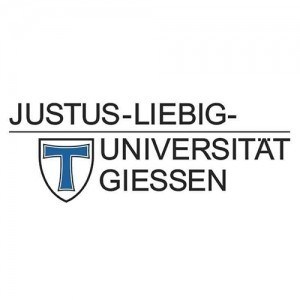Photos of university / #hhu_de
The MA Programme in German-French Business, Labour and Social Law offered by Heinrich Heine University Düsseldorf provides students with an in-depth understanding of the legal frameworks governing employment, social security, and business relations across Germany and France. This interdisciplinary master’s programme is designed to equip students with comprehensive knowledge of both countries’ legal systems, fostering multilingual legal expertise and intercultural competence essential for international legal practice. The programme emphasizes the development of core competencies in legal analysis, comparative law, and cross-border legal issues relevant to multinational corporations, social institutions, and governmental agencies operating within the European Union. Students will engage in advanced coursework covering areas such as labour law, social law, business law, contract law, and administrative law, with a focus on the legal similarities and differences between German and French legal traditions. The curriculum integrates lectures, seminars, case studies, and practical exercises conducted in both German and French languages, promoting proficiency in legal terminology and communication in both jurisdictions. Additionally, students have opportunities for interdisciplinary work, including economics, social sciences, and policy analysis, to broaden their perspective on legal questions in socio-economic contexts. The programme prepares graduates for careers in legal consultancy, international law firms, governmental agencies, social security institutions, and multinational companies operating in Germany and France. Graduates also acquire the skills necessary for doctoral research or further academic pursuits in legal studies. Supervised by experienced faculty members with expertise in European and comparative law, the programme encourages active participation and independent research, culminating in a master's thesis that addresses a relevant legal issue in the German-French context. Overall, this master’s programme provides a unique legal and cultural education, fostering bilingual proficiency, analytical skills, and a profound understanding of transnational legal practices within the EU framework.
Educational organisation
The programme consists of lectures, practice elements, workshops, and seminars. The ECTS system allows for individual choices according to the programme guidelines.This is a joint degree programme.
Study abroad unit(s)
Participants spend the first year of the programme in France and the second year in Germany. They also have to spend two practical study periods of six weeks each in France and Germany.Forms of assessment
Written and oral exams in accordance with the guidelines, Master's thesisThe programme consists of 120 ECTS.
Course objectives
Knowledge in theory and practice in German and French business law, labour law, and social law as well as social and intercultural competencyLanguage requirements
To be considered for admission, applicants must have very good working knowledge of both German and French and are required to provide appropriate evidence of their language skills.Required DSH / TestDaF
YesAcademic requirements
Bachelor's degree in French Law ("licence") and "Zwischenprüfung" in German Law or similar qualificationsEnrolment fees
A semester fee of approx. 280 EUR is required upon registration/enrolment as a student or doctoral researcher. This fee covers transport by bus, tram, and regional trains within North Rhine-Westphalia for the entire semester as well as the use of student facilities.Costs of living
Students or doctoral researchers should calculate monthly expenses amounting to at least 800 to 900 EUR in order to live in a modest way, including costs for housing, food, health insurance, semester fee, study materials, etc.Job opportunities
A limited number of campus jobs are available. Students from non-EU countries are permitted to work 240 half days or 120 full days per calendar year without a work permit.Funding opportunities within the university
In the current year, 40 scholarships are offered from all faculties of Heinrich Heine University Düsseldorf for outstanding students and those in need of financial assistance, amounting to 500 EUR per month for a period usually not exceeding 24 months. Extension is possible.Arrival support
Students:The International Student Orientation Service iSOS is a team of trained student tutors, mostly senior international students who advise and assist international students on various issues such as accommodation, financial aid, laws relating to foreign nationals, etc. However, students are responsible for obtaining their visa and residence permits themselves.
See: http://www.uni-duesseldorf.de/international
E-mail: isos@uni-duesseldorf.de
Doctoral researchers:
Finding your feet in a new country and becoming part of a new (scientific) culture can be difficult. The Heine Research Academies will assist international doctoral researchers in finding accommodation, getting residence permits, financial aid, enrolment process at the university, etc. Please contact us in good time before your arrival and we will help make your research stay at Heinrich Heine University (HHU) a success.
See: http://www.hera.hhu.de
E-mail: hera@hhu.de
Services and support for international students
The International Office (IO) organises iSOS - the International Student Orientation Service (http://www.uni-duesseldorf.de/international) - as an initiative for international students. IO provides information and assistance on other aspects of international exchange. The welcome week helps you get started at HHU, offering intercultural workshops, lectures on Germany's political and educational system, cultural activities, and guided campus and city tours. A tutorial programme is designed to familiarise you with the university system, supporting you in structuring your studies, revising study material, and prepare exams. The buddy programme (Mate-For-You) "matches" new international students to local students with similar interests. All other services of HHU (e.g. language courses, workshops in transferable skills, and career service) are of course open to international students.The Heine Research Academies will assist international doctoral researchers in all concerns of their research stay at HHU. The Heine Research Academies will help you get connected with other researchers by offering a comprehensive information and networking platform for young researchers at HHU. With a complementary programme including workshops on transferable skills as well as interdisciplinary and subject-specific topics, we promote your individual scientific career.
Accommodation
On-campus student accommodation is available, as is private accommodation near campus. For further information, please check http://www.stw-d.de or send an e-mail to info@stw-d.de.Depending on the type of accommodation, the monthly rent in Düsseldorf usually ranges from around 220 to 450 EUR for a basic apartment or a room in a shared apartment ("Wohngemeinschaft"). Doctoral students can contact the Heine Research Academies (http://www.hera.hhu.de) for information and support concerning accommodation in Düsseldorf.









